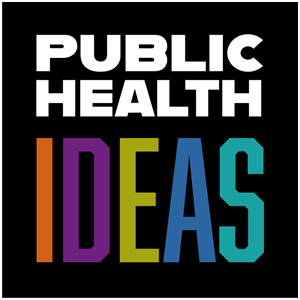Justin Heinze tapped for National Academies committee to study active shooter drills’ impact on student well-being

Justin Heinze, associate professor of Health Behavior and Health Education at the University of Michigan School of Public Health, was selected to join a National Academies of Sciences, Engineering and Medicine committee tasked with investigating the impact of active shooter drills on the health and well-being of K-12 students. The committee of interdisciplinary practitioners will convene to conduct a study looking at the potential long- and short-term effects these drills can have on the health of children and adolescents, and as well as assess their implications for school staff. A report of their findings and recommendations will follow.
With an alarming frequency of active shooter incidents in schools, active shooter and lockdown safety drills have become a necessary but sometimes controversial experience in schools. The committee's role is to dissect various components of these drills, examine how these drills impact different age groups and populations (i.e. students with disabilities, Black and Latinx children, dual language learners, and children with special needs), and determine what drill features minimize adverse health effects and what expertise is needed from school support systems to implement and evaluate best practices.
Heinze has an extensive background in educational psychology and leadership in violence prevention research in school settings and corresponding communities, including several leadership positions:
- Co-director of the National Center of School Safety
- Leader of two National Institute of Justice-funded interventions on school safety and has a history of working on the evaluation of threat identification systems—like anonymous reporting systems— within school communities
- Co-director of the University of Michigan Institute for Firearm Injury Prevention Research Core
- Faculty lead for the school’s Public Health IDEAS for Preventing Firearm Injuries initiative
"A critical eye must be turned toward how these drills are conducted and how they prepare students and staff for potential emergencies without causing undue stress or trauma," explained Heinze.
"Over 90% of students in the US will participate in some form of active shooter training this year, making them one of the most common forms of safety measures schools put in place. The problem is that we don't know enough about how well drills prepare school communities for an emergency or their psychological effect on students and staff, particularly on some of our most vulnerable student populations, such as very young children and students learning with disabilities. With no national standards and limited guidance, in general, for how drills should be conducted, this committee will consider existing research evidence, input from experts, and lived experience of students to provide recommendations for policy and practice to promote safer schools while also limiting potential adverse effects that drills can have."
- The Impact of Active Shooter Drills on Student Health and Well-being
- Interested in public health? Learn more today.
- Support research and engaged learning at Michigan Public Health.
Public Health IDEAS for Preventing Firearm Injury
 Michigan Public Health is uniquely positioned at the epicenter of research, resources,
and expertise to rise to the challenge and address some of the world’s most pressing
problems. That is why we launched Public Health IDEAS—which represents Interdisciplinary Discovery, Engagement + Actions for Society—to
increase collaboration and advance research and engagement in key areas of public
health to achieve meaningful, lasting impact.
Michigan Public Health is uniquely positioned at the epicenter of research, resources,
and expertise to rise to the challenge and address some of the world’s most pressing
problems. That is why we launched Public Health IDEAS—which represents Interdisciplinary Discovery, Engagement + Actions for Society—to
increase collaboration and advance research and engagement in key areas of public
health to achieve meaningful, lasting impact.
Learn more about Public Health IDEAS for Preventing Firearm Injuries.
Media Contact
Destiny Cook
PR and Communications ManagerUniversity of Michigan School of Public Health734-647-8650
